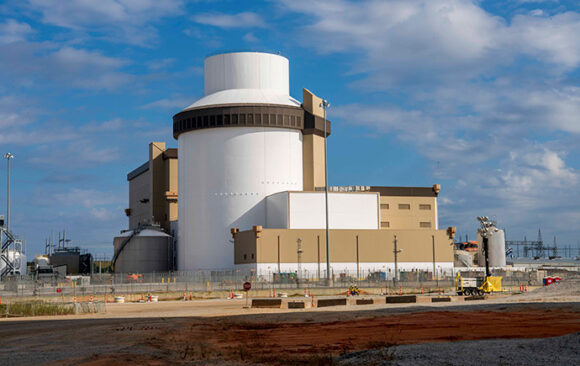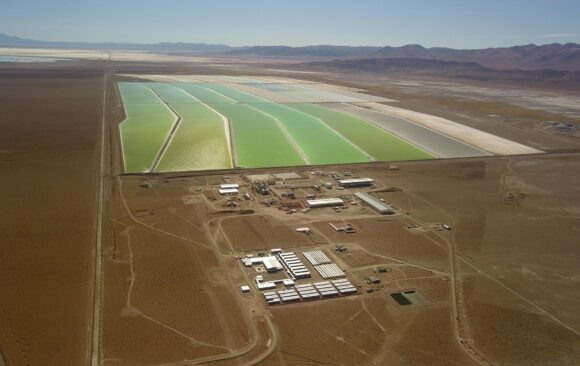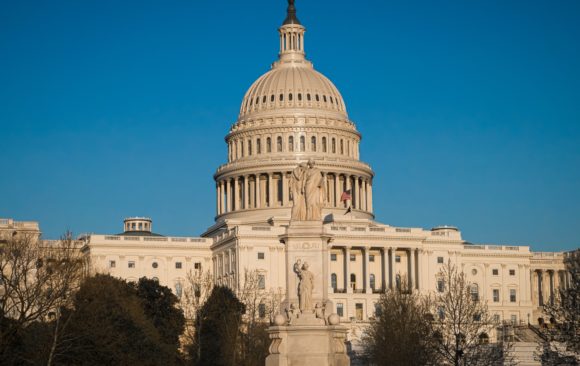Business leaders and politicians have descended upon New York City for the annual Climate Week summit. While the private sector has showcased innovative solutions, much of the media attention this week has centered on protests and unrealistic demands to end fossil fuels. Politicians have also used the week to call for a whole of government approach to reach lofty climate goals. While participants at climate conferences are often quick to emphasize the lack of climate change progress, this year has included several meaningful legislative wins and technological breakthroughs to provide consumers with affordable power and lower emissions.
Four notable examples of climate change progress this year include:
1. American Oil and Gas Goes Big on Carbon Capture and Removal

Record public-private investments in direct air capture (DAC) and carbon removal will help remove emissions and legacy emissions from the fossil fuel sector. In August the Department of Energy (DOE) announced $1 billion funding for two DAC projects in Texas and Louisiana. Project Cyprus in Louisiana will be headed up by Battelle, Climeworks, and Heirloom Carbon. The project in Texas will be managed by Occidental Petroleum and located in Corpus Christi. These facilities will sequester 2 million tons of CO2 annually by the end of the decade, which is equivalent to removing nearly half a million cars from the road.
>>>READ: Battelle, Climeworks, Heirloom Carbon Team Up to Advance Direct Air Capture
In addition to its work with DOE, Occidental recently bought DAC technology firm Carbon Engineering for $1.1 billion. Prior to this, Occidental broke ground on the largest direct air capture plant to date. Once it is operational in 2025, the facility will be able to sequester 500,000 tons of carbon dioxide per year.
The private sector, with the help of federal tax credits, has increased investment in carbon capture utilization and sequestration. In July, Exxon bought pipeline operator Denbury for nearly $5 billion. With this acquisition, Exxon controls over 1,300 miles of pipelines which it will use to transport carbon dioxide from substacks to underground reservoirs. The CO2 may also be injected into new products such as cement, clothing, or even alcohol.
2. Nuclear Power’s Revival

For the first time in nearly 30 years, a newly constructed nuclear power plant delivered energy to the U.S. grid. Vogtle 3, located in Waynesboro, Georgia, will deliver reliable, carbon-free power to half a million consumers in the area. Its companion reactor, Vogtle 4 will come online at the end of 2023 or in early 2024.
In January the Nuclear Regulatory Commission (NRC) certified the design of NuScale’s VOYGR small modular reactor. This milestone represented the first time that the NRC certified an SMR reactor design. Now advanced nuclear companies can develop designs based on NuScale’s to reduce licensing timelines and speed up the approval of new nuclear plants.
In addition to NuScale, other advanced nuclear companies like X-energy and GE Hitachi have signed agreements to deploy their respective technologies across the U.S. X-energy has inked a contract with Dow Chemical to deploy the company’s Xe-100 SMR at Dow’s Seadrift industrial facility along the Texas Gulf Coast. X-energy will also deploy its Xe-100 in Washington state in collaboration with Energy Northwest.
GE Hitachi is partnering with Ontario Power Generation, the Tennessee Valley Authority, and Synthos Green Energy to deploy its BWRX-300 SMR in Canada, Tennessee, and Poland by the end of the decade.
3. Markets and Innovation Deliver Lithium Wins

Last year lithium hit a record $82,335 per ton as supply struggled to keep up with the demand for electric vehicles and renewable energy. Recognizing the economic opportunity to increase lithium supplies, private entities have been hard at work developing innovative technologies and discovering new sources of the rare earth mineral. A massive lithium deposit discovery along the Nevada-Oregon border is estimated to hold up to 40 metric tons of lithium worth over $1.5 trillion. This finding could bolster American energy security and lower the cost and carbon footprint of EVs and batteries.
>>>READ: General Motors Secures Lithium Access With $650 Million Investment
Meanwhile, oil and gas companies have emerged as a surprising player in the lithium rush. In May, Exoon purchased 120,000 acres of land in Arkansas that it will use to produce and process 75,000 to 100,000 metric tons of lithium per year. Additionally, the industry’s brine wastewater from drilling is proving to be a viable source of lithium. In fact, one study estimates that a week’s worth of wastewater from Texas’ Eagle Ford shale could produce enough lithium for 300 EV batteries.
4. Supportive Policy Frameworks Emerge

In March the House of Representatives passed H.R.1, the Lower Energy Costs Act. This comprehensive bill included several reforms to reduce barriers for energy production and streamline permitting. While the bill was dead on arrival in the Senate, some of the permitting provisions of H.R. 1 were included in the debt ceiling limit deal, also known as the Fiscal Responsibility Act (FRA).
In addition, there is growing support for pragmatic, pro-growth policies that will spur economic growth, increase energy supply to provide affordable energy to families and businesses, and deliver climate change progress. As we have highlighted in our 2023 Climate and Freedom Agenda, a largely bipartisan list of bills would reform the tax code to accelerate innovation, fund agricultural research and development, and support the next generation of nuclear power.
With an issue like climate change, it is easy to solely focus on the challenges that need to be overcome, including reducing emissions around the world to meaningfully lessen climate risk. While there is more work to be done, 2023 has delivered notable climate wins to lower emissions while keeping costs affordable and energy reliable.
The views and opinions expressed are those of the author’s and do not necessarily reflect the official policy or position of C3.
